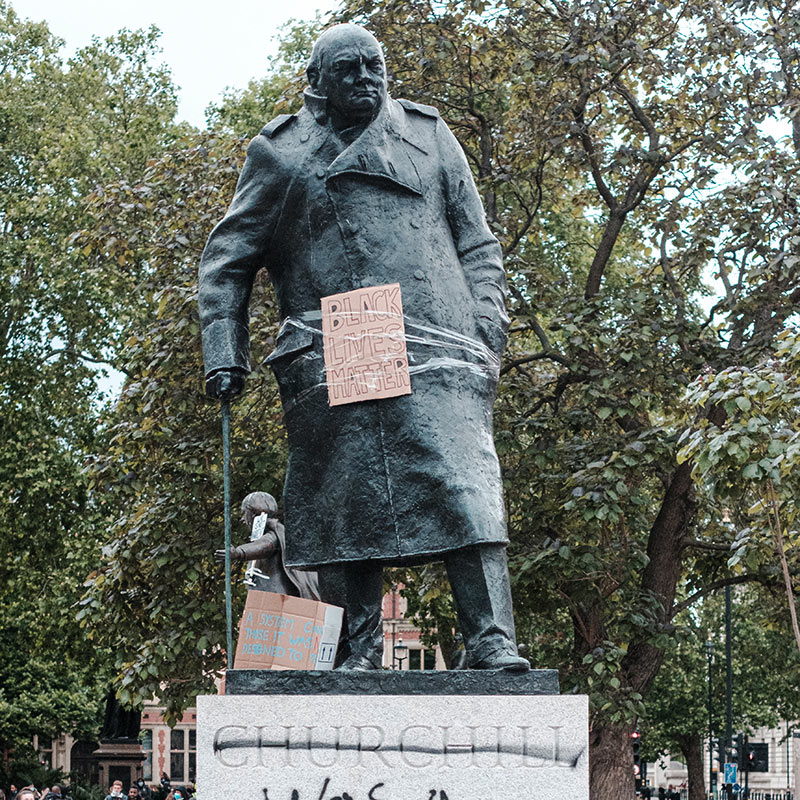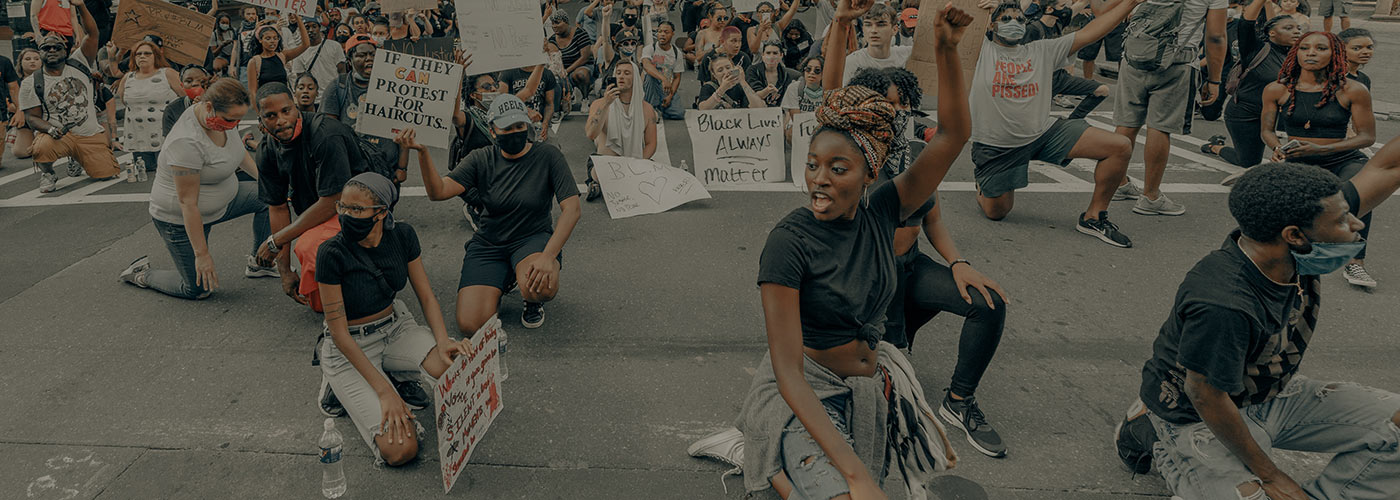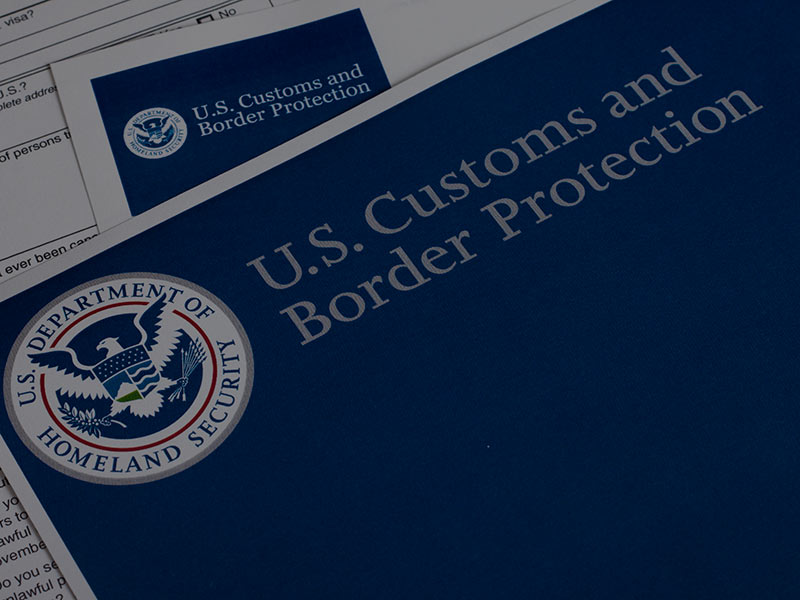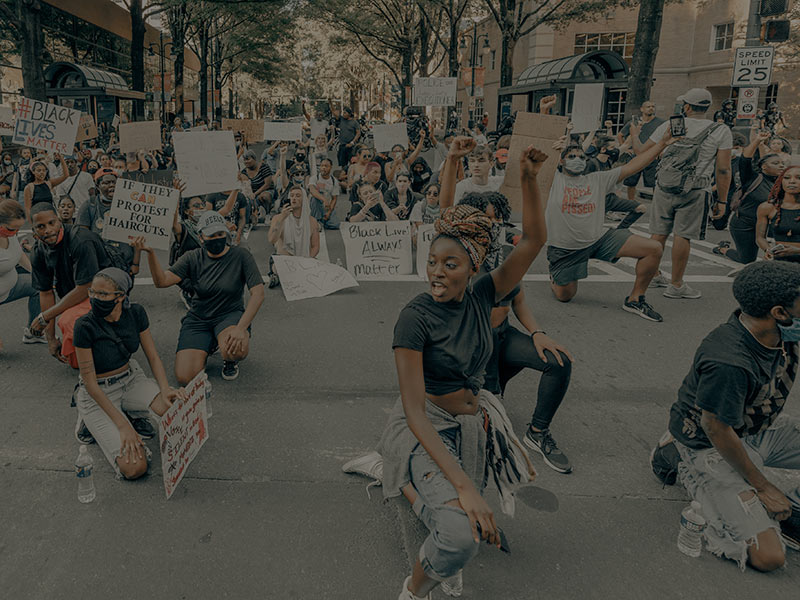
How societies address the economic impact of slavery, colonialism, and legal discrimination on Black communities has been an ongoing debate that has received renewed attention due to the Black Lives Matter movement. Calls for reparations and other restorative justice measures are growing louder, are beginning to extend into the private sector, and are being met with legislative initiatives and numerous small-scale reparations programs.
What's New
The Black Lives Matter movement and the global focus on racial justice sparked in June 2020 have reinvigorated calls to acknowledge the policies and practices that stripped and suppressed Black communities from amassing intergenerational wealth—and repair the historical damage that it created.
This has set the stage for a global call for financial reparations for slavery and colonialism.
There is growing pressure on governments to confront the legacy of colonialism and slavery. In June 2020, the UN human rights chief called for reparations for slavery and colonialism, with specific reference to the killing of George Floyd in the statement.
Countries that were previously colonized, such as Burundi and the Democratic Republic of the Congo (DRC) have begun calling on colonial powers for reparations. Belgian lawmakers have agreed to set up a panel to look at Belgium’s colonial history in the DRC, Rwanda, and Burundi. And in the U.S., California passed a landmark law in 2020 requiring a study of how the state could provide reparations for slavery. At the federal level, H.R. 40, the Commission to Study and Develop Reparation Proposals for African-Americans Act, was reintroduced to Congress in January 2021 as the new administration enters the White House.
Attention is shifting beyond governments to businesses too. In the U.S. and the U.K., civil society has begun to demand reparations from businesses. Racial injustices are increasingly being framed as human rights violations, and companies that have committed themselves to the UN Guiding Principles on Human Rights have an obligation to remedy such violations.
While reparations for slavery and colonialism may only impact companies with direct historical ties, newer companies will also have to confront existing disparities. The emergence of these renewed calls is pushing the racial justice agenda further than ever before and paving the way for other measures—such as investments in Black communities—to be widely adopted. Demands for companies to address racial injustices are beginning to increasingly impact business success, as seen with the plunge in Carrefour’s share price following the killing of an unarmed Black man by guards at one of its stores.
As this issue progresses, we expect increased debate around what constitutes reparations: some see donations, investments, and divestments as a form of reparations; others, including Black Lives Matter leadership, define reparations beyond investments and divestment to include concepts such as restitution and guarantees of non-repetition.
Signals of Change
In the UK, the Legacies of British Slave-ownership is a database of modern individuals, estates, and companies that have benefited from the slave trade. Included in this database are Lloyd’s of London and Greene King breweries, both of which have acknowledged the history and have pledged to invest in recruiting more people of color but have stopped short of offering financial reparations. Both have been criticized for not doing enough.
In June 2020, civil society groups called on Bank of America to pay reparations and recognize its role in the perpetuation of racial economic inequality, following the bank’s announcement that it would be committing US$1 billion over four years to address economic and racial inequality accelerated by a global pandemic, which critics said was not enough.
In July 2020, Asheville, a city in North Carolina, approved reparations for Black residents and apologized for its role in sanctioning slavery and other historical injustices perpetrated against Black people. Although the reparations initiative does not include direct payments, it is establishing a process to specifically address the creation of generational wealth and to boost economic mobility and opportunity in the Black community. City leaders also called on the state of North Carolina and the federal government to provide funding for reparations at the state and national level.
Fast Forward to 2025
We are a young tech company so initially we didn’t think we needed to have a position on reparations, since we had no direct ties to slavery ourselves. We had internal discussions early on about our responsibility to address racial injustice from slavery and colonialism...
The Fast
Forward
BSR Sustainable Futures Lab
Business Implications
Calls for reparations broaden the entire conversation around accountability for historical racial injustice. Even companies not directly implicated in slavery and/or specific racial injustices may need to have a formal point of view and demonstrate action on reparations. This work on reparations would be in addition to any racial justice programs companies are already rolling out.
Stakeholders will more closely monitor the conditions of business’ entire operations from entry-level workers to international workers throughout supply chains, which tend to include more Black people. This includes ensuring people are paid living wages, have access to benefits like health care, and are in safe and dignified working conditions.
Industries with documented current and historical damage to Black communities may face closer scrutiny, including the energy sector, financial services, food and beverage, fashion, more recently technology companies including fin-tech companies, and particularly in the U.S., healthcare.
In response, businesses will need to be more transparent and proactive in knowing if/how forms of exploitation and structural oppression (including slavery, colonialism, redlining, and sharecropping, among others) played a role in the company’s history, acknowledging that role, and being prepared to make amends.
Examples of history that a company may need to make amends for include: a founder having owned enslaved people, past racist remarks or support of racist policies/people, workforce segregation, wage discrimination, client discrimination, slave labor, indentured servitude, and investment in a company that utilized slave labor. In addition to current diversity efforts, companies will need to adopt equity frameworks that address the impact of the past. Companies’ Diversity and Inclusion strategies will need to be developed with an equity lens, rooted in the collaboration and mutuality between companies and marginalized communities.
Employee engagement on racial justice and reparations may need to increase. Powered by social media, there are increased models for calling companies and individuals to account for their workplace practices and culture, and companies will need to address racial justice in the workplace head on. This will also be a crucial aspect of attracting and retaining younger talent who are increasingly value driven.
Sustainability Implications
Companies should comply with the UN Guiding Principles on Human Rights across their operations, including the core principle of access to remedy, and apply this principle within the context of racial injustices and calls for reparations.
Companies are beginning to expand their Diversity and Inclusion initiatives to include Equity and to make public commitments to racial justice. These commitments should be grounded in restorative justice principles that include not only financial reparations, but also responsibility and accountability and other means of redress, such as mandating racial bias training at all levels within companies and government positions, and increased job training programs for Black youth and formerly incarcerated citizens.
Reparations is not just a conciliatory gesture. It’s a tangible way for all sectors to begin to remedy the lingering negative effects of economic injustice and racialized exploitation, globally. Businesses have a unique opportunity to leverage their power, resources, and reach to not only address barriers and unjust practices within their own value chains; but also, to create equitable access to opportunities at the community-level, and to positively influence broader public policy. Additionally, the discourse around reparations allows for companies to engage in a more critical and nuanced analysis about what it means to “operationalize” racial justice and move beyond traditional diversity & inclusion strategies, which tend to be transactional, towards transformative equity-based approaches.
At the same time, businesses will need a framework that pivots them away from the traditional ‘Business Case for Diversity’—which inherently commodifies BIPOC for the purpose of profits—but still makes clear the win-win benefits of diversity, equity, and inclusion for all stakeholders.
Sustainability functions, particularly those that are inclusive of social justice and human rights, will need to expand their focus and geographic scope to consider human rights violations tied to historical and current operations in their home countries. Sustainability teams will need to coordinate with supply chain and human rights teams to ensure current labor practices prioritize the well-being and dignity of all workers.
Sustainability teams must also work closely with their legal counsel to mitigate their own risks while operating under the restorative justice framework. They must also work with their government affairs team to understand what, if any, reparations the government will be paying out to the descendants of enslaved people and/or any reporting requirements they will have on business.
The form that reparations take in different jurisdictions is not yet known, and the extent to which they will go beyond the role of governments into corporates is also unknown. Companies with direct historical legacies in slavery may need to partake in truth and reconciliation commissions, while others may face one-off payments, on-going investments, or even reparation taxes. Nonetheless, there will be an increased need to engage relevant stakeholders, including governments, as well as collaborate within and across industries to ensure effective solutions are implemented.
![]()
Previous issue:
Costly Consequences for Forced Labor
![]()
Next issue:
Technology Gets Emotional
































